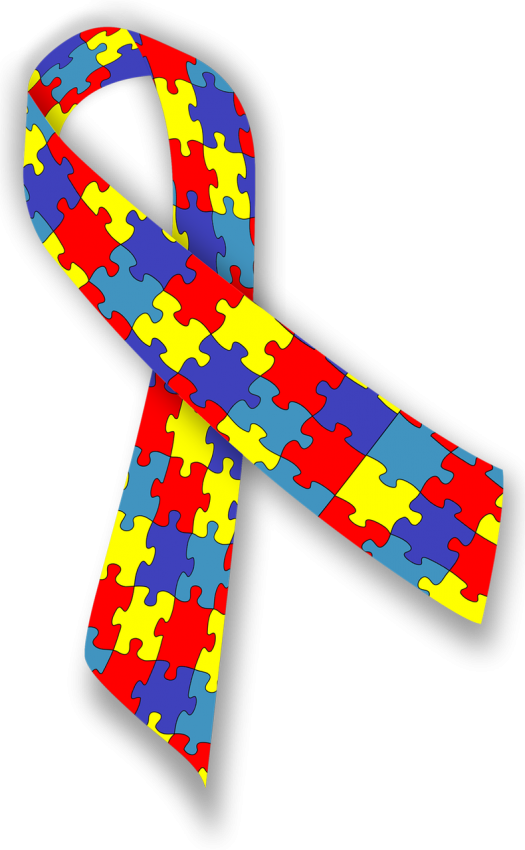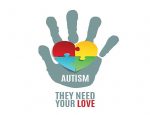Every year, World Autism Awareness Day is internationally recognized to take measures in raising awareness about people with autism throughout the world. It was the ninth annual World Autism Awareness Day on Sunday, April 2nd, with the theme for this year being “Toward Autonomy and Self-Determination”.
To contribute to raising awareness on autism, we put together a list things to know about the Autism Spectrum Disorder (ASD).
 Seven Things To Know About Autism
Seven Things To Know About Autism
1. Every Person With Autism Is Unique
Every person with ASD experiences it differently. Some will be talkative and crave social interaction, while others may be nearly or completely nonverbal and agitated by social interaction. The variations are huge.
2. Many Individuals With Autism Have A Special Interest
People with Autism usually have special interests. One characteristic that tends to be consistent among them is having a special interest they can often become fixated on. There is no limit to what said interest could be; sports, math, musical talents or a phenomenal gift of memorization.
3. People With Autism Experience Sensory Sensitivity
Although every individual with autism is unique, a common characteristic is sensory sensitivity. Autistic individuals can become extremely agitated by smell, sight, taste, sound, and/or touch.
Many children with autism spectrum disorders either under-react or overreact to sensory stimuli. At times they may ignore people speaking to them. However, at other times they may be disturbed by even the softest sounds. Sudden noises such as a ringing telephone can be upsetting, and they may respond by covering their ears and making repetitive noises to drown out the offending sound.
4. Early Intervention Is Key To Treatment of Autism
Early intervention is important to lessen the impact of autism. It does not define an individual, nor does it determine the level of success and quality of life that individual will achieve. Early intervention is integral to helping individuals with autism cope with their specific set of symptoms. When properly managed they can function in society and lead happy, fulfilling lives. This is not to say that people who do not receive early intervention are in any way “doomed”, but research has shown that the earlier ASD is addressed and treated, the easier children will be able to cope and certain symptoms may even be reversible.There are various signs of autism that occur at the start of a child’s life, and are imperative for parents to take note of in order to seek treatment as quickly as possible, including:
- A lack of expression such as smiling or giggling after six months of age
- Furthermore, a lack of response to expressions from others after nine months. Babies normally will be able to “smile back” at you before this time period.
- A lack of speech or “babbling” by the baby’s first birthday.
- An inability to formulate any words by 16 months.
- A lack of gesturing, “such as pointing, showing, reaching, or waving by 12 months.”
- “No meaningful, two-word phrases (not including imitating or repeating) by 24 months.”
- If there is a halt in social skills or speech, parents should contact their physician or treatment therapist to address the possibility of ASD.
[Tweet “Early intervention is integral to helping individuals with autism cope with their specific set of symptoms.”]
5. It Is Important To Identify The Triggers That Lead To Meltdowns
Identifying triggers is essential. Something that may be mildly irritating for someone, can feel completely debilitating to someone autistic. The range of things that could specifically affect a person with ASD is vast. It is integral for those involved with a person who has ASD to identify this trigger in order to help alleviate distress and avoid these instances.
Sometimes the cause can be physical, such as with sleep problems or food allergies. People with ASD cannot communicate as well verbally, therefore it is important to listen to the ways they do know how to communicate.
6. People With ASD Can Go On To Achieve Great Things
Being an individual who lies somewhere on the autism spectrum does not mean that person cannot go on to achieve great things. People with autism may experience several challenges due to the ways they process information. Other symptoms often can make things like social interaction difficult but; it is important to remember that people with ASD are unique, remarkable individuals just like everyone else.
As many people with ASD have special, specific interests, often times the zeal individuals experience over these interests can turn them into huge successes.
7. People With Autism Desire Acceptance And Unconditional Love
Acceptance and love are two things we all desire. People with ASD need to be accepted and loved – this is especially important. As they continue to face monumental challenges in being understood by mainstream society.
Culled from Listland


